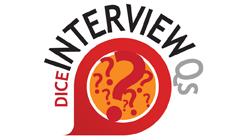Data warehouse developers are highly visible professionals who earn solid annual salaries – around $96,000 -- because they’re responsible for using state-of-the-art development tools and technology to successfully deliver business intelligence information across the enterprise. ![]() Most candidates are screened over the phone or Internet by recruiters like Vince Brown, director of healthcare IT informatics and IT recruitment at ICON Staffing Network. “Candidates need to be truthful about what they know from the outset,” Brown says. “Otherwise, they’ll be hard-pressed to answer tough questions about their coding skills and their ability to lay out ETL mapping.” We asked Brown to share some of his favorite screening questions for data warehouse developers. Are you only an ETL developer or do you have other data warehousing experience?
Most candidates are screened over the phone or Internet by recruiters like Vince Brown, director of healthcare IT informatics and IT recruitment at ICON Staffing Network. “Candidates need to be truthful about what they know from the outset,” Brown says. “Otherwise, they’ll be hard-pressed to answer tough questions about their coding skills and their ability to lay out ETL mapping.” We asked Brown to share some of his favorite screening questions for data warehouse developers. Are you only an ETL developer or do you have other data warehousing experience?
- What Most People Say: “I have strong, well-rounded data warehousing skills.” Then: “What’s that? You want to know what I’ve done outside of ETL mappings? Ah, I need to look at my resume.”
- What You Should Say: “I have broad experience that extends beyond data extraction, transformation and loading. I have strong coding skills in SQL and Oracle. I’ve collaborated with data warehouse architects and I’ve helped configure several database and business intelligence tools. May I tell you about two of my recent projects?”
- Why You Should Say It: The best way to showcase your skills and abilities is by providing an overview of recent projects. That way, the recruiter or hiring manager can get a sense for what you can do. Remember that every job is different and you may be a good fit for some positions but not others. (By the way, referring to your resume during the interview – which some people do -- is a sure sign that something’s not right.)
How much experience do you have with Informatica products? On a scale of one to 10, rank your skills against other Informatica developers.
- What Most People Say: “I’m a nine or a 10.”
- What You Should Say: “I have three years’ experience and I’d rate myself a seven or an eight.”
- Why You Should Say It: Mastering Informatica is practically impossible because it’s a constantly evolving tool. “Most developers don’t even use the entire tool, so rating yourself a 9 or 10 raises a red flag about your honesty because nobody’s that good,” Brown says.
Are you familiar with Netezza? What type of processing does it use?
- What Most People Say: “I don’t know what type of processing Netezza uses.”
- What You Should Say: “Netezza uses massively parallel processing, or MPP. We use Netezza at my current company so we can search a number of databases in parallel.”
- Why You Should Say It: Since the setup for MPP is more complicated and requires an advanced developer, Brown uses this question to separate rookies from veterans. More experienced developers usually explain how they’ve partitioned a common database or assigned work among several processors.
Have you done any data modeling work?
- What Most People Say: “Yes, I’ve used logical and physical models.”
- What You Should Say: “I’ve created conceptual, logical and physical models using tools like CA ERwin, ModelRight and Visio. May I give you a couple of examples?”
- Why You Should Say It: Examples are the best way to illustrate your hands-on experience with different data modeling techniques and tools. Some people have only observed them.
“The questions only get tougher from here,” Brown says. “You don’t need to ace every answer or match every single requirement, but you need to be honest about your strengths and shortcomings.” Finally, Brown has experienced some candidates actually searching the Internet for answers during a phone or online interview. “I don’t want to hear typing during the interview,” he says. “It’s better to emphasize your strengths while painting an accurate and realistic picture of your experience with key development tools and processes.”

